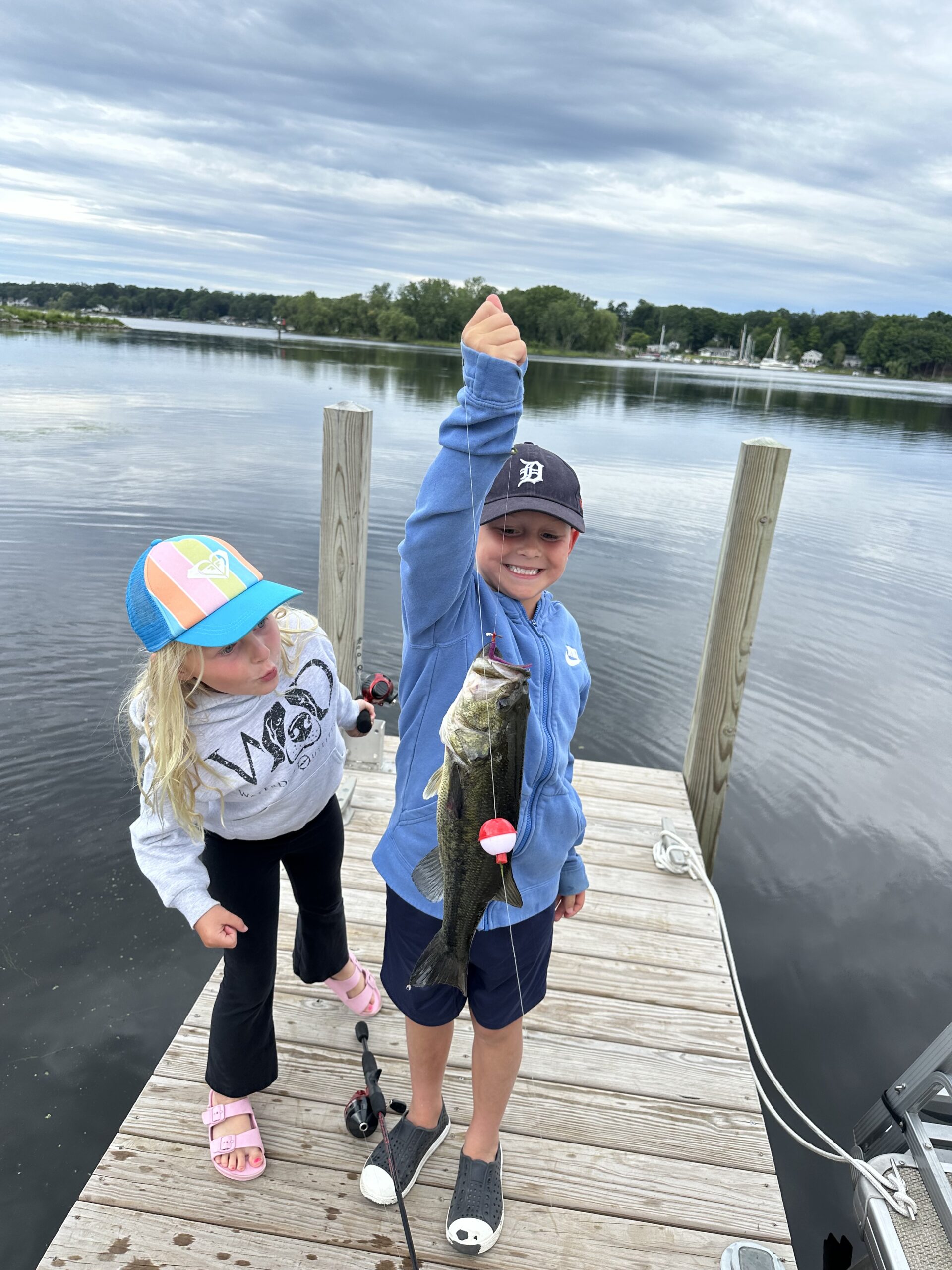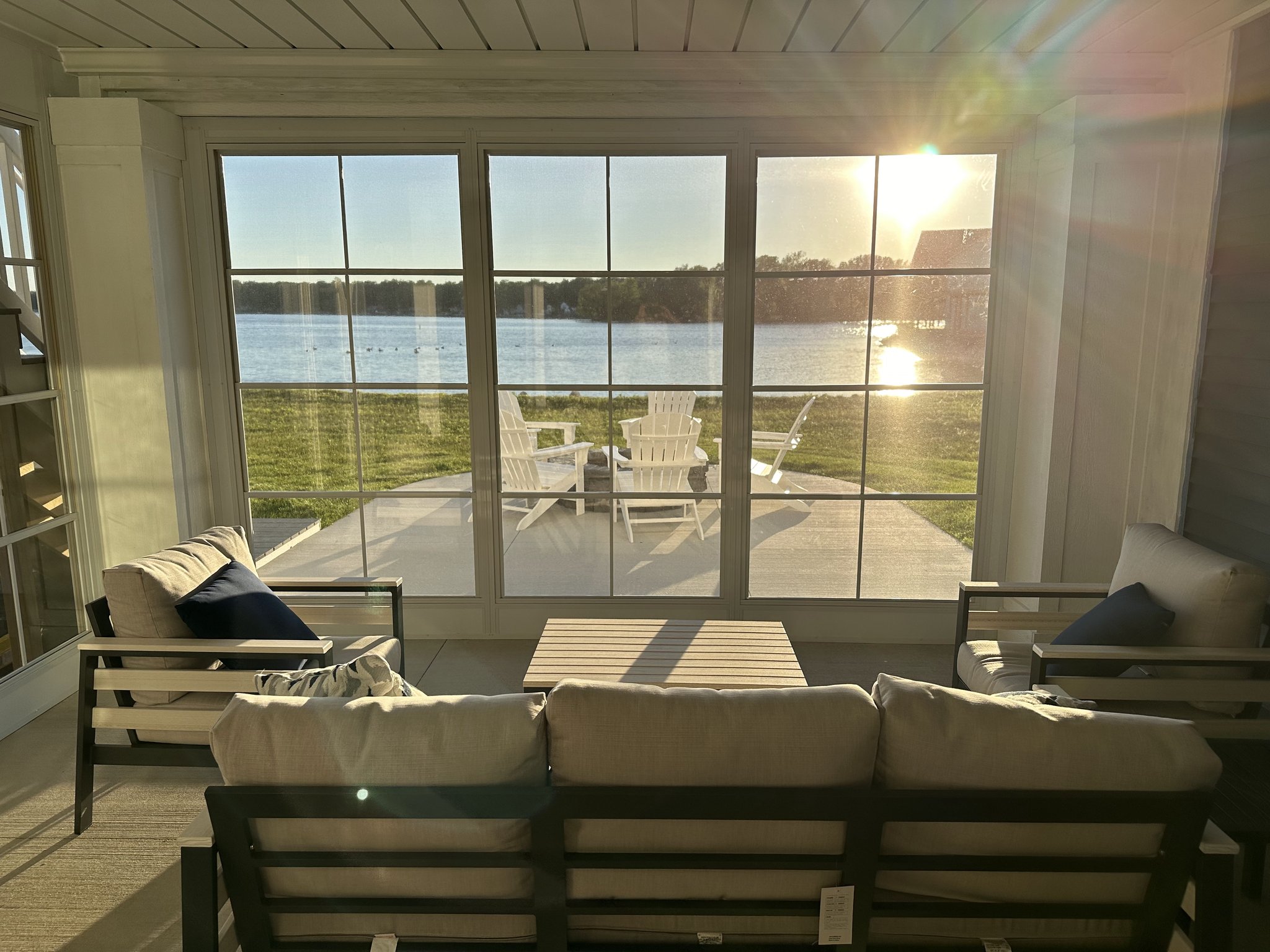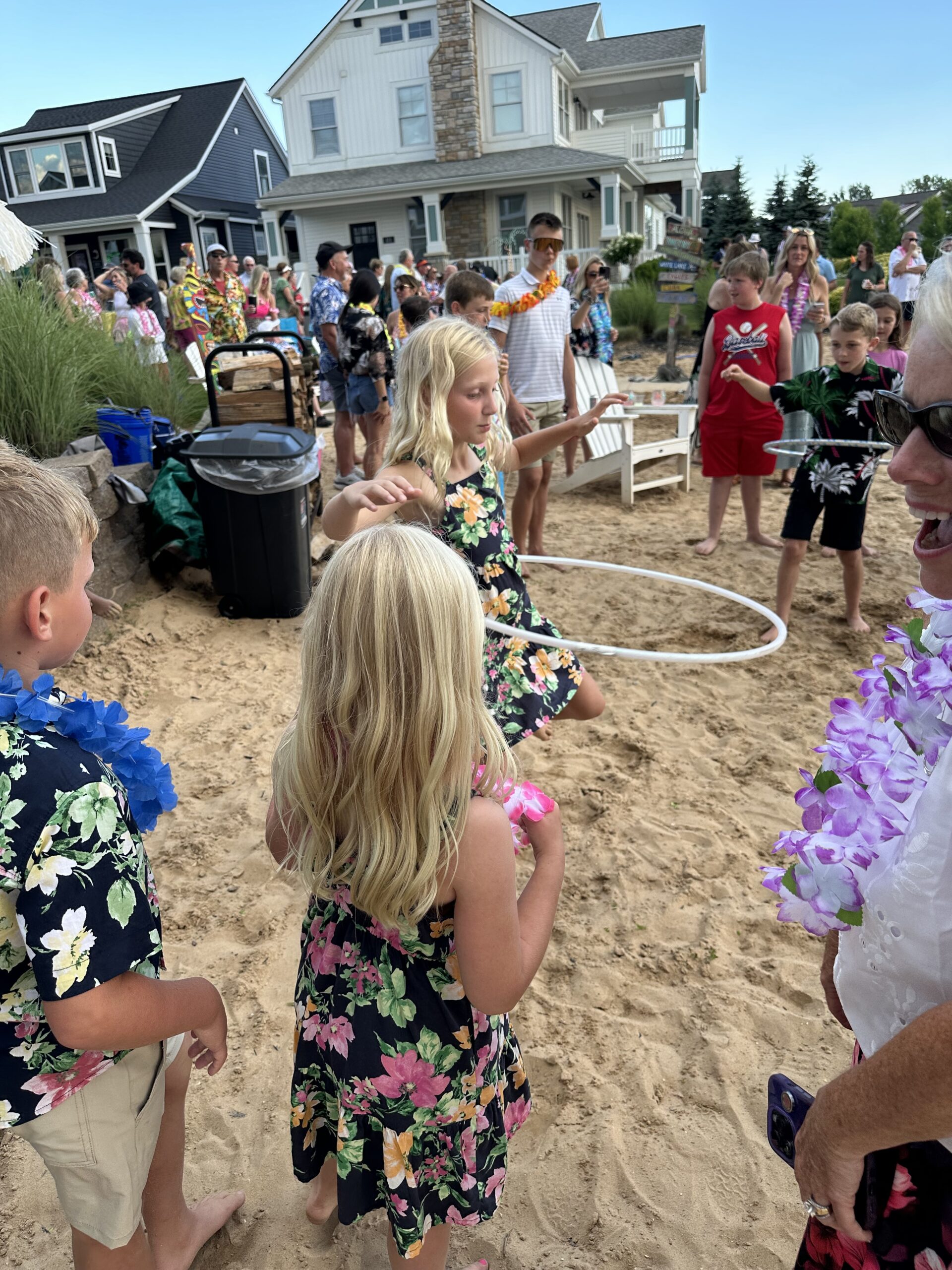A reader asks:
As someone that spends too much time thinking about buying a lake house, I would love to hear your thoughts. The argument that you will feel tied down and obligated to go to the lake house at the expense of other travel worries me.
A few weeks ago I wrote about my all-time high in savings and why it was a mistake. Here’s something I shared:
But I no longer feel it’s necessary to go over and above when it comes to saving. I want to enjoy some of my money now while I can.
That’s the biggest reason our savings fell off a little in 2022 and 2023. We took a bunch of trips. We did some minor renovations to the house that added hangout spaces. We bought a boat. We own a lake house.
A few people asked if I would share my experience of owning a vacation house.
We’re in a fortunate position to own a house on the lake but there was also some fortuitous timing involved along with some risk.
Our oldest daughter was 3 years old when our twins were born in 2017. We quickly realized travel was going to be nearly impossible what with all the car seats, strollers, pack-n-plays and such.
That same year our good friends were building a house on a lake so we got to spend some time in a new area. We loved it. And it just so happened that a brand new development was getting underway right on the water.
We had always discussed buying a lake house someday but never explored it too seriously until we saw this place. There were plans for a community pool, a marina, and a restaurant (that never happened), but the development was still in its infancy, so lots weren’t selling all that quickly. It was a risk, and prices reflected that.
We got a really good deal in 2018 and built a wonderful place right by the water. As they slowly but surely added more homes we decided we would eventually trade up when the second phase got underway and lots with better views opened up. Those conversations with the builder took place starting in 2019.
Then the pandemic hit. Plans to build more houses were shelved because of the supply chain issues. Our house skyrocketed in value. By the time we sold it in 2022, it was up ~75% in less than four years.
We used that equity to buy a new house in a better location with better lake views. The timing of that purchase will be the best investment we’ll ever make.
The builder allowed us to lock in the price in late-2021, which was still reasonable at the time. The lender allowed us to lock in a rate before the construction even started when mortgage rates were still 3%. The house took 18 months to build as the construction industry slowly thawed. By the time it was done in the spring of 2023 mortgage rates were approaching 7% while the price of houses exactly like ours were going for 50% more than we paid.1
If you just base it on the down payments we made, we’re talking Nvidia-like returns here. Sure, we took some risk by buying one of the first homes in a new development but we got very lucky with how the timing of everything worked out.
I’d call it 20% the risk we took2 and 80% luck.
That’s our story. Now let’s discuss some pros and cons of owning a vacation home.
Let’s start with the cons:
Two mortgages. Obviously, it’s more expensive.
Higher property taxes. The property taxes on a second home are much higher than a primary residence. The property taxes on our vacation house are roughly double what we pay on our primary home.
The upkeep. Taking care of another property when you don’t live there full-time an be challenging.
Luckily, we’re part of an association that handles landscaping, snow removal and upkeep. That’s another monthly cost (even though it’s worth it).
It’s also a pain to take deliveries and get things serviced since you’re not there all the time.
Usage. I saw a statistic estimating that people spend an average of about six weeks a year in their vacation homes.
We’re higher than that (it helps that our place is only an hour away from home base) but some people might not use it enough to justify the cost.
I love going to the lake most weekends but some people might prefer more variety.
Concentration risk. Owning multiple homes makes you concentrated in the housing market. We have a big chunk of our net worth invested in Michigan real estate.
I’m OK with this risk but it’s a risk nonetheless.
Now for the benefits:
It feels like a vacation every time. The anticipation of a vacation often gives you the biggest psychological boost. I get that feeling on a weekly basis in the summer.
I still get excited every time we head north.
More time spent outdoors. We spend far less time indoors looking at our phones, social media or television.
Our kids are outside all the time — swimming, boating, fishing, going for walks, playing on the beach, going for bike rides, etc.

We could do more of this at home, but having a lake house forces you to be outside more.
You could rent it out. Our association doesn’t allow Airbnbs and the like but I know some people who own a second home who rent it out to help cover the costs.
Remote semi-retirement. My job affords me the flexibility to work from anywhere.
We often extend our weekends in the summer to spend Friday-Monday at the lake. We were there for ten days around the 4th of July.
The ability to combine work with relaxation and fun is one of my favorite parts of having another place.
The water. Being around water puts me in a better mood.

[my happy place]
It’s also a valuable selling point as an investment. A friend told me a house on the water will never go down in value.
This is an exaggeration but probably right 90% of the time.
The memories. Buying a second home was the best/luckiest financial decision we’ve ever made.
But even if we lost money on our second house experiment, the investment would have been worth it.
We’re creating memories that will last a lifetime and it’s hard to put a price on that.

The best thing about having a vacation home is that it provides an excuse to spend more time with friends and family.
I discussed this question on Ask the Compound:
Bill Sweet joined me on the show to discuss questions about executing a die with zero retirement strategy, changing tax status on your tax return, tax-optimizing your retirement distributions and muni bond funds.
Further Reading:
My All-Time High in Savings
1Prices caught up in a hurry. The first-mover advantage helped here too.
2We had a few friends, family members and unnamed financial advisors try to talk us out of it. I’m glad they didn’t.
